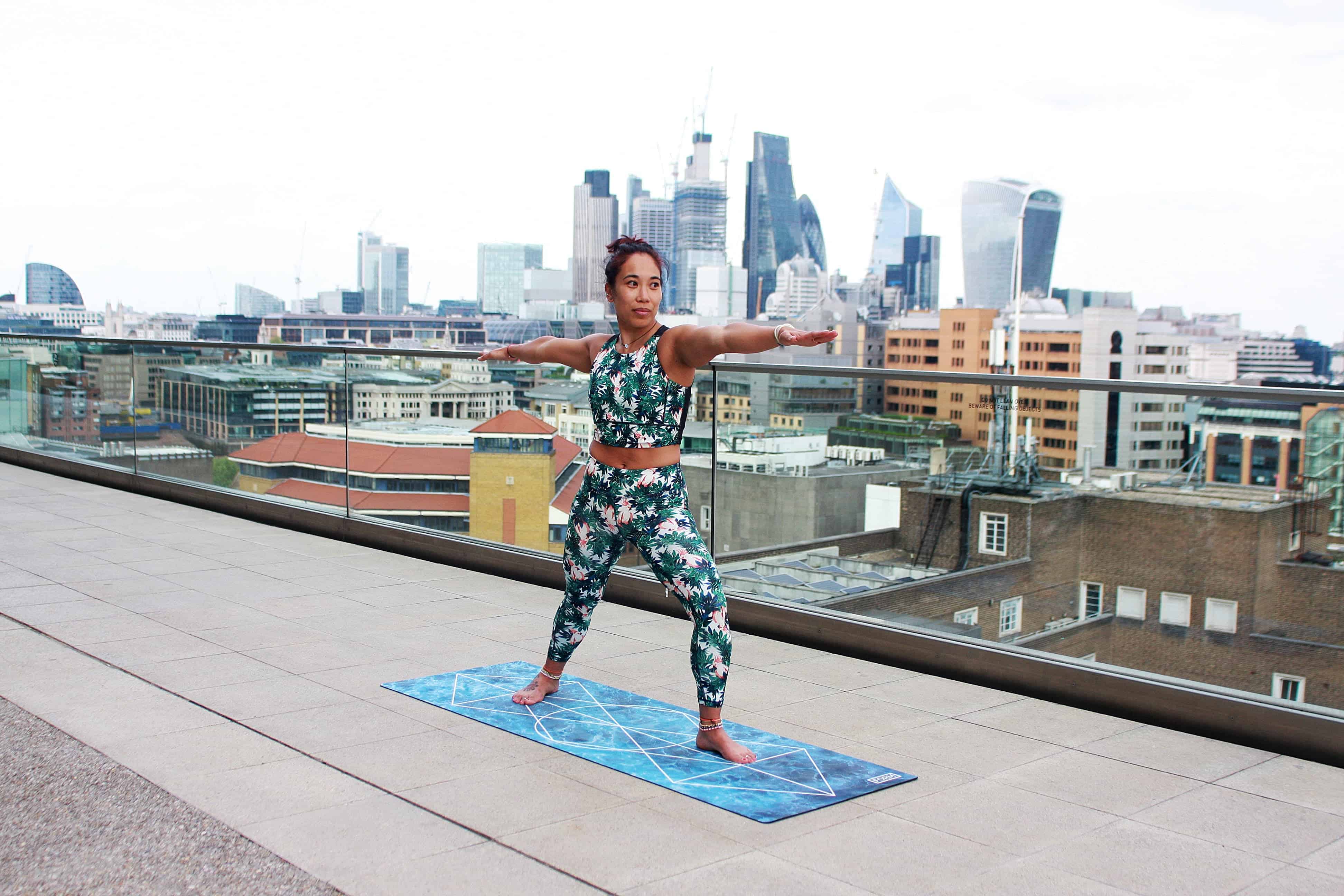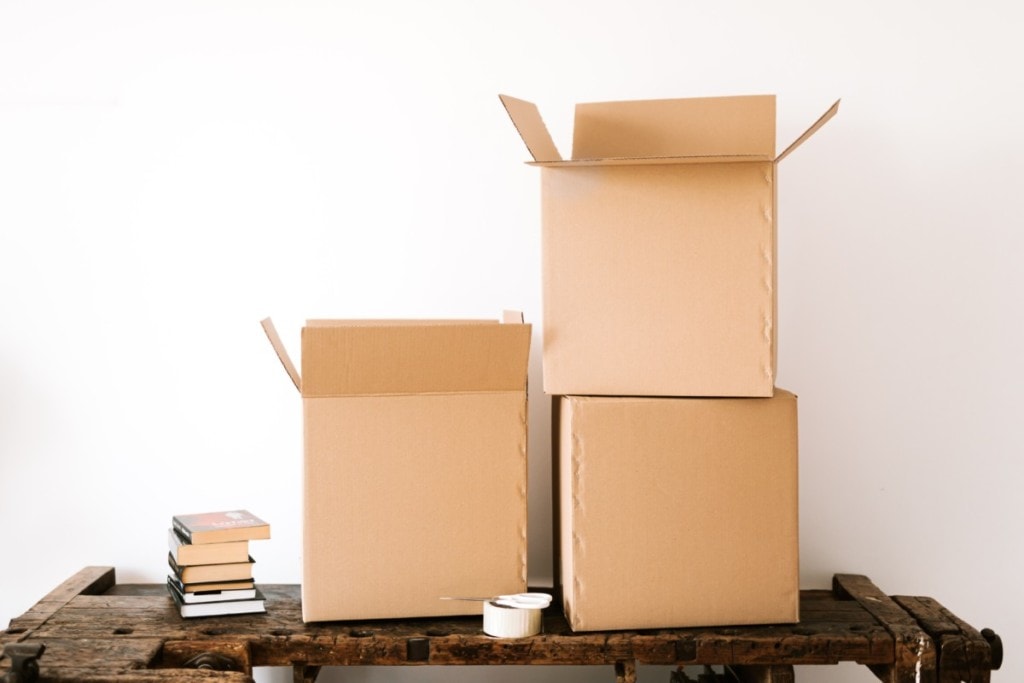The psychology of moving is well documented. Moving is considered one of the most stressful life events by researchers. Even cats and dogs experience moving stress, but unlike humans, we can’t explain to them why it’s happening. No matter how much you love your new home, you might still experience moving anxiety and relocation depression. It is important to practice self-care throughout this transition, so you can stress less during your move.
Self-care doesn’t have to be elaborate, glamorous, or expensive–sometimes it simply means brushing your teeth, eating nutritious food, calling a friend, or planning in advance, in order to care for your future self. To make this process easier, follow our guide for self-care tips during moving, including a less-stress moving checklist, and aftercare tips to address relocation depression.
Self-Care Tips to Reduce Moving Anxiety
Try these self-care tactics before, during, and after a move:
- Start packing early: Schedule more time to pack than you think you need. Most people underestimate the number of items they have and how long it takes to pack them. You will appreciate having too much time rather than not enough. –Michelle Mathena, President of Under One Roof, Inc.
- Exercise: When we exercise, our bodies release endorphins that act as a natural mood booster. Exercise can also help get your mind off an upcoming move. Whether you like to jog, lift weights, or play basketball, exercise warms up your muscles to be ready for the physical activities involved in moving. On the other hand, if you are forcing yourself to work out even when you’re exhausted, you can practice self-care by resting. The most important thing is to find the movement that brings you joy.
- Yoga: Say it with us: You don’t have to be flexible to enjoy yoga. This ancient healing regimen can be adapted for everybody, regardless of whether or not you can touch your toes. You might try Tadasana, or mountain pose, to feel powerful.
- Set aside time each day to care for you: Even though your “to do” list grows and time is limited during moving make sure to take time for yourself. For example, go for walks, take a bath, play with your children, practice 20 minutes of yoga. Make sure to carve out the space to enjoy life and decompress during the process instead of waiting until the move is over. When you wait stress and tension builds putting your health at risk and makes unwinding the stress more difficult. It doesn’t have to be a large amount of time, 15-20 minutes to reset your nervous system. It will pay off in the long haul. –Alison McLean, Ignite Ur Wellness
- Pause and breathe: As you are going through the moving process it is easy to get caught up in the to do list that seems endless. Instead of rushing from task to task and feeling continuously frenzied, stop, take 3 full breaths, and congratulate yourself on a job well done as you complete each task on your checklist. You will find that with these mini breathing breaks you will feel less frenzied and overwhelmed, and calmer, more focused, and actually enjoy the process. –Katey Hawes, Posabilities4u.com

- Journaling: Many people enjoy journaling because it helps them think clearly. You might journal before your move, and plan out the logistics of where everything is going to go. You might also take a few minutes to list three things you’re grateful for each day.
- Simplify your beauty routine: When you are getting ready to move, it’s an opportunity to simplify your beauty routines. Narrow down your essentials by keeping the products you can’t live without and honor yourself with those only. This will help declutter your cabinets and your mind while making an important transition in your life. The last thing you need is to worry about too many steps in your routine. –Hayley Wood, Therapeutic Skin Coach
- Don’t forget to eat: You have to eat! Think about the resources you have at that moment. Do you have more time, energy, or access to finances? If you have the time, cooking a meal could be self-care. If you are low on energy, grabbing takeout from your favorite local restaurant might be your best bet. When thinking about food and nutrition, what’s most important is eating consistently and eating a variety of foods to help with mood regulation, decreased anxiety, and stress management. –Hannah Turnbull, NourishED
- Practice mindfulness: Can you notice your breath? Is it shallow and quick, or deep and slow? Can you bring your awareness to your toes as you wiggle them each individually? If so, you’ve just practiced mindfulness! Mindfulness is the process of noticing the breath and bringing awareness to the present. Practice mindfulness daily for less stress. Support mindful breathing with an aromatherapy formula for stress. Nectar Essences “de-stress, unwind” remedy features bergamot and jasmine essential oils which are scientifically proven to combat stress. The pleasant scent helps you shift your vibration and help you neutralize your response to stress. Breathe it in to instantly feel more calm and relaxed throughout the moving process. –Jenny Pao, founder, Nectar Essences
- Ask for help: Moving is usually not a one-person operation. Whether it’s asking a friend to help pack in exchange for pizza, or calling your uncle to borrow his pickup truck, asking for assistance will lighten the load when moving day arrives.
Does Clutter Cause Stress?
For most people, less clutter equals less stress. If you have been in your current home for many years, you probably have lots of extra stuff such as clothes, tupperware, toys, and furniture taking up space and not necessarily “bringing you joy.” There’s no time like the present to embrace your inner Marie Kondo and declutter your closet. If it sounds overwhelming, try setting aside half an hour a day to go through the following item categories:
- Clothes
- Books
- Papers
- Misc. items
- Sentimental
Every piece of extraneous stuff you offload ahead of time will help come moving day. By approaching organization mindfully, and well in advance, you’ll be setting yourself up for success. As for disregarded items, consider holding a garage sale to make some extra cash, renting a storage unit, or dropping them off at the thrift store for a tax-deductible donation.
Decluttering is a key component of the organization before a move, but it is not the only one. Use a moving checklist to avoid procrastination and plan out an easier move.

Relocation Depression: How to Cope
By now, the stress of moving day is over, and depression might be setting in. Relocation depression is common. You’ve likely got hundreds of items to unpack, miss your friends, and are trying to establish yourself in a new city. It’s important to honor the emotions that come up during this disruptive time. If you’re in a funk after moving, try these self-care tips:
-
-
-
- Explore the city. Whether by walk, bike, bus, or car, getting out and exploring is the best way to familiarize yourself with a new place. Walk Score has great resources for discovering walkable areas in your neighborhood.
- Make new friends: Start by introducing yourself to new neighbors and coworkers, and joining them for social events like happy hours or concerts. Try to approach people with the intention of getting to know them, and ask lots of questions. Dating apps are a great way to meet new people, even if you don’t find a significant other. You may just find a friend!
- Call old friends: Don’t forget to stay in touch with old friends. Just because you moved and won’t see them as often, doesn’t mean you can’t keep those friendships alive until you’re reunited. With social media, there’s no excuse to let good friends slip through the cracks.
- Create a peaceful space at home. Some people find it comforting to rearrange the furniture in a similar way as before or display beloved objects that bring familiarity into the home. Creating a clutter-free zone can encourage relaxation, too.
- Take advantage of massage and infrared sessions: Add a therapeutic massage and infrared session to your new self-care routines to improve your physical, emotional, and spiritual balance. Get a healthy start in your new place. –Thrive Massage and Wellness
- Try meditation: Finding calm amongst the storm of moving is as easy as finding your center point of awareness – that calm still place in the middle of the cyclone. Meditation in general could be seen as returning to your true home. The secret is to become aware of awareness. Regardless of the contents of your awareness, your thoughts, and perceptions of people and places, there is always a calm clear awareness that is in the background as an observer of everything. Noticing the observer and its qualities of stillness, calm and spaciousness is the key to feeling at home wherever you are. –Chad Foreman, The Way of Meditation
- Engage in alternate nostril breathing: To calm the mind and cycle oxygen through the brain, why not try alternate nostril breathing. Simply inhale and exhale fully, then cover the left nostril completely and breathe in only through the open RIGHT side. Then at the top of the inhale, hold it… and switch sides. Now you should be covering the right side and exhale fully only through the open LEFT side. Do this 4-5 times alternating a complete breath on each side. As you become calmer, you can try to extend the fullness of your deep inhales and exhales by counting slowly to 4, 6, or 8, to pace the rate of your breath and be sure that your inhale matches the length of your exhale. –Ryan Altman, Adams Avenue Integrative Health
- Do something new. Taking up a new hobby can help bolster your identity and build a sense of community. Try signing up for a dance or yoga class; join a club, gym or adult sports league; enjoy the outdoors through hiking; embrace your nerdy side by participating in a game night, or revisit a hobby you loved as a child.
-
-
Of course, all the self-care in the world can’t replace a medical professional or therapist. If you are in crisis, call or text the national crisis hotlines.
Moving is stressful for many reasons, and it’s easy to let self-care fall to the wayside, but this is truly the time you need it most. Be gentle with yourself and stick to your self-care routine, whatever that looks like. Whether you are moving into your first home, embarking on a cross-country move while changing jobs, moving into your dream house, or moving into retirement, a little self-care can go a long way.

 United States
United States Canada
Canada